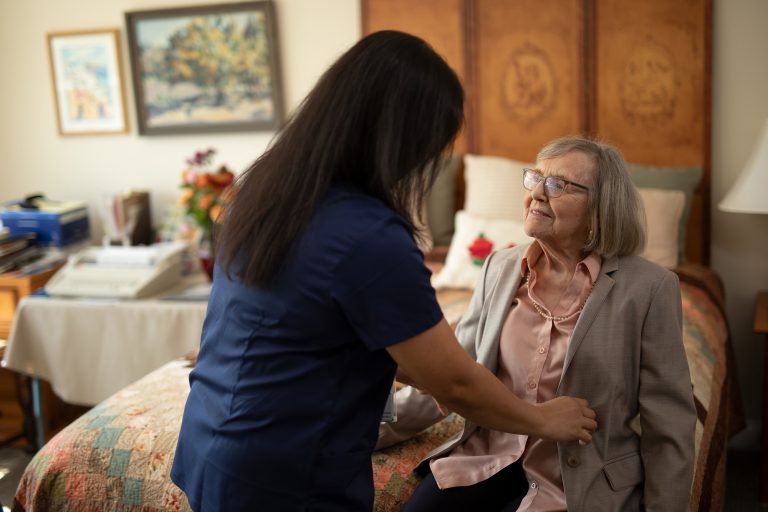
Identify Early Signs of Dementia and Learn About Treatment Options
In order to identify something, you must first understand what it is. Dementia is more than just forgetting where you put the car keys. It is a decrease in cognitive functions of thinking, remembering, and reasoning to the point that it affects your daily life. While there is no cure for Alzheimer’s disease or other forms of dementia, there are treatments that can help a person with this diagnosis manage their symptoms and plan for the future. Learning to recognize the early signs of dementia can help you and your loved ones know when it’s just normal forgetfulness or when it’s time to talk to a doctor.
10 early signs of dementia to look for
While dementia has three distinct stages, there are some symptoms that occur in the earliest stage that may be more subtle, such as having difficulty planning or solving problems. But the earlier dementia is diagnosed, the sooner a treatment plan can begin.
- Memory loss that affects daily life
- Difficulty in planning or solving problems
- Wandering or getting lost in familiar places
- Trouble speaking or using unusual phrases to refer to common objects
- Issues with balance or movement
- Putting items in unusual locations or accusing others of stealing
- Withdrawal from favorite activities
- Increased confusion regarding dates and time
- Impulsive behavior
- Repeating questions
If you notice any of these symptoms in yourself or a loved one, the best option is to discuss your concerns with a medical professional who can order additional tests, such as cognitive and neurological tests, brain scans, genetic tests, or even simple blood work. If these symptoms are present in someone 65 or younger, they could have a case of early-onset dementia.
Treatment options for dementia
If you’ve received a dementia diagnosis, you may wonder, “What now?” There are many different treatment options that help slow the progress of dementia.
- Medications: The FDA has approved several medications that can help improve the symptoms of dementia, such as cholinesterase inhibitors, antidepressants, sleep aids, memantine, and more recently, lecanemab, which helps prevent the buildup of amyloid plaques which is suspected to be a factor in causing dementia.
- Therapies: There are a number of different therapies that can help people with dementia cope with their symptoms. Occupational therapy can teach you how to make your home safer to prevent wandering or falls. Music therapy can help trigger memories or emotions, especially if listening to songs that have special meaning. Pet therapy can help calm anxiety or improve a person’s mood.
- Genetic testing: Genetics may play a role in developing dementia and other conditions. Fellowship Village, one of FellowshipLIFE’s four communities, offers genetic counseling. The results from your test can help you make more informed decisions about your healthcare future. The genetic counselor at Fellowship Village is there to help you respond to your results objectively and create a plan for your overall wellness.
Next steps
A dementia diagnosis is life changing. But the early stage is the best time to make a plan. FellowshipLIFE’s communities offer long-term care plans for residents. Their Fellowship Freedom Plans are designed to help you stay in your home and independent for as long as possible, with the comfort of knowing you’ll have additional help when you do need it. So even if you don’t need much help now, but think you might need more in the future, now is the time to make a move to one of FellowshipLIFE”s caring communities. Contact us today to learn more about how we can help with genetic counseling or making a plan to care for a loved one with dementia.




